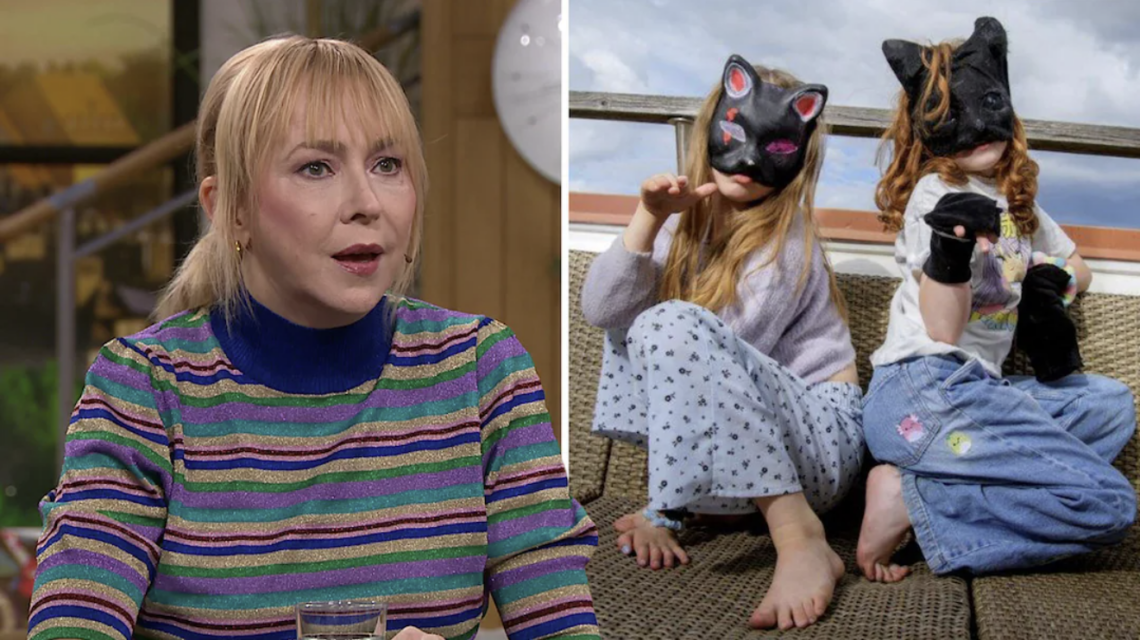Children who identify as animals. It is apparently the latest “trend” among the growing Swedes. This is the opinion of psychologist Jenny Jägerfeld, who on TV4 Nyhetsmorgon gave adults tips on how to deal with children who suddenly consider themselves to be foxes, wolves or cats. The entire feature, entitled “Talking to children about identity”, can be seen here.
The psychologist’s message to the adult world is that you don’t need to be too worried if your child starts claiming to be an animal and, for example, demands to wear a mask or tail that shows which animal he or she “is”, but that adults must at the same time understand that the identification can be serious:
– That you feel… No but, that I feel that I am partly a fox. Or like… That you… That you like, that you feel that you like… That you have animal-like instincts or behaviors or something like that… Eeeh… Because… Too many people feel that way, no but this is how it is, I feel like a fox, I kind of sniff the air or I’m a wolf, I feel like howling or walking on all fours. Eh, like that. So that… Mmm…
A child galloping around the classroom, sneaking around in the grass in search of a prey or meowing in response to a question has previously been referred to as the child playing. Just as children have played throughout human history. This is how children have always approached the world around them and prepared for the adult world: they play. We who are adults today remember the time when, as children, we played pretending to be princesses, ghosts, pirates, Pippi Longstocking, a cool sports car, our idols for the day – and of course every imaginable animal regardless of whether they walked, crawled, flew or swam.
Sometimes the game got intense and for a while you really were Robin Hood in Sherwood Forest. Or an alien who crossed the Milky Way at warp speed. Or your favorite horse at the riding school during a jumping competition. Our parents said we had strong imaginations.
But in today’s woke-marinated adult world, those children blessed with particularly intense and imaginative play have stopped playing animals. Instead, the children are considered to “identify” with the animal they feel strongly about at the moment, and of course the woke world has coined a special word for the phenomenon: Theriantropy.
A child who identifies as a therianthrope “experiences a strong, inner connection to an animal” and theriantropy is described as follows by Swedish Wikipedia:
“Theriantropy (from Greek theríon, θηρίον, meaning beast, and anthrōpos, άνθρος, meaning human) is the word for complete or partial transformation from human form to an animal form.”
In connection with describing the concept, Wikipedia also points out that therianthropy is often confused with lycanthropy, which is the process a werewolf goes through when it transforms, but which has also been described as “a kind of delusion that one is or can transform to a wolf or other animal”.
Delusion. There you go. Because what is happening right now is that the adult world is turning the completely normal play of human children into a delusion. Playing children only need to be told that “Yes, you sound just like a cat!” or “Hey wolf, have you eaten Lisa..?”. So, after ten minutes or a couple of weeks, the child no longer “is” a fox, wolf or cat – but just Lisa. Ten minutes later Lisa might be a Lamborghini Aventador.
Just as it should be, when you are a child.
But what if the adults start thinking in terms of the constructed “identification” instead of the natural “play”? If we don’t just show the child that it’s okay to play and pretend, but start sticking labels about “identification” on him or her? If we even create concepts for the child’s pretend play and spend seven and a half minutes of Nyhetsmorgon discussing how the adult world should respond to “the child’s strong, inner connection to an animal”? Will it be just as easy for the child to stop playing if the adults suddenly start claiming that the child is not just playing cat, but identifies as a cat? A child, who doesn’t even know what the word “identification” means?
If the child, through the adults’ reactions, learns that play is not the free choice to undemandingly and curiously move into and out of roles as one wants, but that the play is so serious that the adults change their behavior and start treating the child as if the game were reality – then what happens to the freedom and the lack of demands? With the, for the child’s development, so vital play? Which teaches children about reality, precisely because it allows the child to approach reality without the seriousness of reality?
And what will be the next step? If the young child is taught that it can “be” a fox, wolf or cat, what happens when the child gets older? Then is not long before the girl realizes that she probably “is” a boy, and the boy wants to “be” a girl, and the toy nose and Velcro tail are replaced by hormones and surgical procedures. You can, after all, “identify” as exactly what you want…
But on closer reflection, perhaps that is precisely what the goal of a woke adult world is: to break apart and confuse, and replace the natural with the unnatural.
Nyhetsmorgon believes that parents can help their child by confirming their identification. I agree, one hundred percent, but I want to go further than the psychologist. My advice is: If your child demands that you treat him or her like a fox, wolf or cat – do it. The first thing you can do is emphasize that animals do not use mobile phones or social media. Your child’s time as a therianthrope will therefore be shorter than a post on TikTok.

